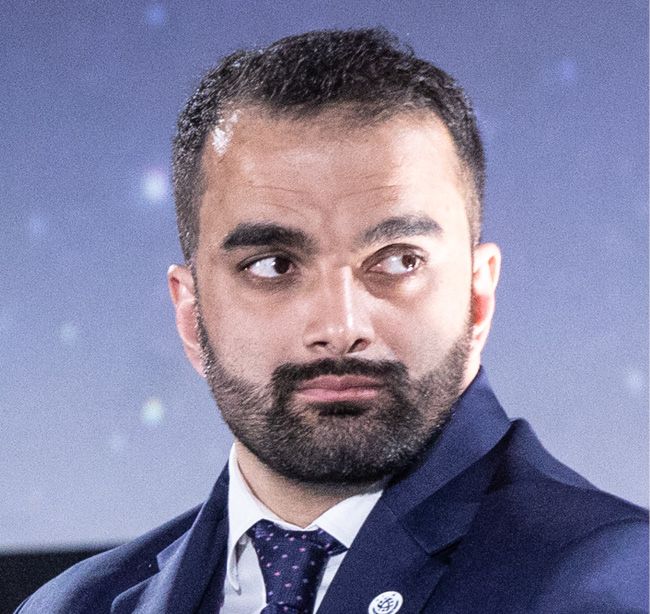
Youth perspective: Let’s make space for young people

By Hamza Hameed, Senior Manager for Space & Policy, Access Partnership
Imagine a world where a young mind brimming with innovative ideas is silenced simply because of a lack of Internet access. Sadly, this is the reality for approximately 2.6 billion people globally, most of whom live in rural and underserved regions.
Among them are countless young people whose potential contributions to our global society remain untapped due to the digital divide.
Bridging this divide isn’t just about providing access to technology; it’s about empowering young individuals to have a voice and shape their futures.
Innovative technologies, especially those emerging from the space sector, offer unprecedented opportunities to close this gap. Realizing this potential requires proactive steps—particularly in adopting progressive and modern tech policies that promote technological inclusion, accessibility, and adoption.
Organizations like the International Telecommunication Union (ITU) play a vital role in facilitating international cooperation and setting standards that help guide these efforts. Their work underscores the importance of collaborative approaches in addressing global connectivity challenges.
Satellites open world for youth
Space technologies – notably low-Earth orbit (LEO) satellites – hold transformative potential.
Unlike traditional infrastructure, which can be expensive and slow to deploy in remote areas, satellites can deliver high-speed Internet to isolated regions, from mountainous villages to remote islands.
Private companies are already demonstrating how satellite constellations can bring broadband to places previously unreachable.
For youth in these areas, Internet access means educational resources become available, participation in global dialogues becomes possible, and avenues for entrepreneurship open up.
Regulation, infrastructure and skills required
To unlock these benefits, we need regulatory frameworks that encourage innovation while ensuring equitable access.
It’s imperative that governments and policymakers work together to create environments where emerging space technologies can thrive and reach those who need them most.
By embracing modern tech policies, we can accelerate the deployment of innovative solutions and make meaningful strides in closing the digital divide.
Moreover, space-based technologies contribute to critical infrastructure development.
Earth observation satellites provide data for climate monitoring, disaster management, and agriculture – directly improving the livelihoods of young people in rural or underdeveloped regions. Access to real-time data empowers communities to make informed decisions, enhancing resilience and boosting local economies.
However, connectivity alone isn’t enough.
We must also prioritize digital literacy to ensure young people have the skills to navigate the digital world safely and effectively. Initiatives focused on education and skill-building are crucial in empowering youth to amplify their voices confidently and responsibly.
Space technologies can catalyse youth activism.
By providing critical data—such as tracking environmental changes—they enable young people to advocate for social, environmental, and political change. These tools empower youth to influence policy decisions and strive for a more just and sustainable world.
In light of these opportunities, I encourage policymakers, industry leaders, and stakeholders worldwide to champion progressive and modern tech policies.
By fostering collaboration across sectors and supporting initiatives that promote technological inclusion, we can create an environment where innovative solutions thrive and reach those who need them most.
Equipping youth to build the future
Bridging the digital divide requires a concerted effort that combines innovative technologies with proactive policies and collaborative partnerships.
By leveraging space technologies and the frameworks provided by organizations like ITU, we can implement scalable and transformative ways to connect the unconnected.
Empowering youth from underserved communities with these tools doesn’t just amplify their voices – it enables them to actively shape a more inclusive, equitable, and sustainable digital future for all.
Hamza Hameed is a Pakistani lawyer at Singapore-based Access Partnership and a member of the ITU Secretary-General’s Youth Advisory Board.
This blog post is based on his remarks during an Action Days session preceding the UN Summit of the Future.
Header image credit: AdobeStock
